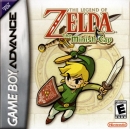Mr Khan said:
I think the differences in the two camps amount almost to semantics. Soundwave has advocated the "TV dock" solution as the answer for what is to be done about those who want a Nintendo home console experience (and i think the amount is less negligible than he does, if only due to games like Mario Party/Mario Kart/Smash Bros): a handheld in 2016 could do Wii U graphics at lower resolutions (say 540p or so), and then attach to a device that upscales those games to 1080p w/AA.
Whether they do that or do a "multiple devices, same OS, mostly same games" approach boils down almost to semantics. There are a few key differences, upsides and downsides, to the two very similar approaches, but the only question is to what degree the next handheld and console will be synched, not whether or not it will occur. |
I think your discriptor there is probably going to be fairly dead on. The only thing I'd add is probably you could see more than 2 "hardware variants", from the way Iwata speaks maybe there could be 3 or 4 ... a home "dock", the standard handheld, maybe some that's a larger tablet form factor, etc.
Same games between them all, relatively the same experience like you described. Just like iPhone, iPad, iPod touch.
Beyond that I think in the next five years you will see Nintendo expand and become more than just a game company. They'll have their health/fitness/senior citizen line of products (Quality of Life), I think Amiibo will expand into a larger full blown toy line, and perhaps more merchandising oppurtunities and media (movies?).
You look at a company like LEGO, that has movies and theme parks and stores on top of a toy line ... why not Nintendo? Disney basically copped Nintendo's character archetypes to make "Wreck It Ralph" (which is in effect a parody of the arcade Donkey Kong) a hit.




























































